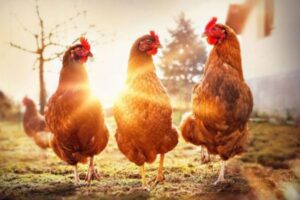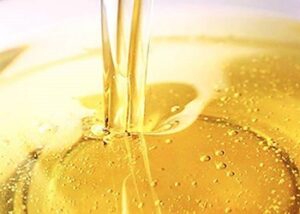
Net sales of dollars by the National Bank of Ukraine rose to $737.8 million last week compared to $510.7 million a week earlier and $475.0 million two weeks earlier.
According to the information of the National Bank on its website, from September 19 to 23, it purchased $7.1 million, which corresponds to the usual purchase volumes during the war, while it sold $744.9 million compared to $528.2 million a week earlier.
This week, on the cash market, the hryvnia again weakened by about 70 kopecks, and its rate came close to the level of UAH 43/$1, while the official rate of UAH 36.57/$1 was fixed since July 21, but by the end of the week it strengthened to UAH 42.7/$1. $1.
Since the beginning of September, the volume of interventions of the National Bank in the market has already exceeded $1.8 billion compared to $1.33 billion in August and $1.2 billion in July, but still remains much less than in June ($3.96 billion) and May ( $3.4 billion).
Finance Minister Sergei Marchenko said that in August the volume of foreign aid to Ukraine amounted to a record $4.6 billion since the beginning of the war, compared with $1.7 billion in July and $4.4 billion in June.
In general, from the beginning of the year to September 23 inclusive, the NBU purchased $3 billion 121.3 million and EUR111.0 million on the market, and sold $18 billion 607.7 million and EUR1 billion 789.1 million.
Including since the beginning of the war, the purchase of foreign currency has reached $2 billion 464.4 million and EUR111.0 million, and the sale – $15 billion 837.5 million and EUR1 billion 789.1 million.
The international reserves of Ukraine as of September 1, 2022, according to the NBU, amounted to $25.436 billion (in equivalent), which is 13.6% or $2.679 billion more than at the beginning of August. In July, the fall in reserves amounted to 1.6%, or $371.5 million, in June – 9.3%, or $2 billion 343.8 million.

Sales of trailer vehicles in Ukraine (new and used) in July 2022 grew by almost 2.3 times compared to the same month in 2021, AUTO-Consulting has reported.
“In July, record sales volumes were seen on the trailer market, including a significant share of new semi-trailers,” the group said on its website.
At the same time, sales of new trailers grew by 42%, and sales of used ones grew by almost 2.6 times.
As Auto-Consulting director Oleh Omelnytsky told Interfax-Ukraine, in the total number of trailers sold, new semi-trailers amounted to 369 units, trailers were 8 units.
According to the group’s analysts, such a high demand was provided by agricultural and oil companies, as well as international haulers.
The largest sales in July were provided by dump trucks-grain carriers, in second place were fuel tank carriers.
“For the first time in a month, more than 100 tanks from different manufacturers entered Ukraine,” the company said.
Increased demand was also noted for curtain side semi-trailers, refrigerators and trawls.
The German Schmitz-Cargobull became the market leader with a 21% share and a 2.4-fold increase in sales. Polish manufacturers were also active.
Turkish manufacturer Ali Riza Usta was in the lead in the segment of fuel trucks, slightly ahead of the Ukrainian Everlast. The trailed equipment of the Ukrainian plant VARZ was also in demand.

Agroholding MHP, the largest producer of chicken meat in Ukraine, in January-June 2022 reduced chicken production by 3% compared to the first half of 2021 – to 346.04 thousand tons, while its sales – by 12%, to 338.6 thousand tons, the holding company reported on the London Stock Exchange on Wednesday.
It is noted that in the second quarter of 2022, the agricultural holding, in the context of the Russian military invasion, reduced chicken production by 11% compared to March-June last year – to 170.4 thousand tons, and by 3% compared to the first quarter of 2022. At the same time, the volume of chicken meat sales in the second quarter of 2022 amounted to 140.6 thousand tons, which is 23% lower than the same period last year, but 1.6% higher than sales in the first quarter of this year.
According to the exchange message, in January-June 2022, chicken sales on the domestic market decreased by 6% compared to the first half of 2021 – to 134.7 thousand tons, while supplies to foreign markets – by 17%, to 157.9 thousand tons. At the same time, in the second quarter of 2022, chicken sales in Ukraine amounted to 67.9 thousand tons, decreasing by 6% compared to the second quarter of 2021, but increasing by 1.6% compared to the first quarter of 2022. In turn, chicken meat exports in the second quarter of 2022 fell by 37% by the second quarter of 2021, and by 23% by the first quarter of 2022, to 68.55 thousand tons.
Thus, the share of chicken exports in January-June of this year decreased by 4 percentage points (p.p.) against January-June 2021 to 52% from 56%, while in March-June 2022 this figure decreased to the same period last year by 11 percentage points – up to 48% from 59%.
In addition, MHP poultry farms in the EU in January-June 2022 produced 37.4 thousand tons of poultry meat, which is 5% more than in the first half of 2021, and in the second half of 2022 – 19.6 thousand tons (+ 1% compared to the same period in 2021).
The average price of chicken meat in January-June 2022 increased by 24% year-on-year, to $1.93/kg, while in March-June it increased by 22% compared to the same period last year, to $2.03/kg.
According to MHP, in the first half of this year, the agricultural holding increased sales of culinary products by 76% compared to the first half of last year – up to 6.97 thousand tons, including in the second quarter of 2022 it sold 4.1 thousand tons of these products ( +54% compared to the second quarter of 2021).
According to the report, the sale of processed meat products (including sausages) by the agricultural holding in January-June 2022 decreased by 48% compared to January-June 2021 – to 8.3 thousand tons, and in March-June 2022 – by 73 % compared to March-June last year, up to 2.3 thousand tons.
According to the results of the first half of the period, the sale of semi-finished meat products decreased by 14% – to 7.4 thousand tons, while according to the results of the second quarter – by 24%, to 3.42 thousand tons.
MHP specified that in January-June 2022, sales of sunflower oil decreased by 11% compared to January-June last year, while in March-June 2022 they increased by 38% compared to March-June 2021, to 48.5 thousand tons. tons. At the same time, sales of soybean oil in the first half of 2022 decreased by 15%, and in the second quarter increased by 23% compared to the same periods in 2021, to 19.5 thousand tons and 9.2 thousand tons, respectively.
“In 2022, the company should sow about 335 thousand hectares of land in the grain crops segment. The harvesting campaign for winter rapeseed and wheat is on schedule, of which 70% and 25% are harvested, respectively. The yield of all winter crops is expected to be good and in line with the company’s expectations with taking into account the weather conditions. Spring crops (corn, soybean and sunflower) are in good condition,” the agricultural holding stated in an exchange message. MHP is the largest chicken producer in Ukraine. It is also engaged in the production of cereals, sunflower oil, meat processing products. On the European market, MHP supplies chilled half-carcasses of chickens, which are processed, including at its enterprises in the Netherlands and Slovakia. In February 2019, the agricultural holding completed the acquisition of the Slovenian company Perutnina Ptuj.
MHP generated $393 million in net profit in 2021 against a net loss of $133 million in 2020, while its revenue grew by 25% to $2.37 billion.
The founder, majority shareholder and head of the board of MHP is Ukrainian businessman Yuriy Kosyuk.

Kernel, one of the largest Ukrainian agro-industrial groups, in the 2022 financial year (FY, July 2021-June 2022) reduced sales of vegetable oil (sunflower and rapeseeds) by 29% compared to FY 2021 – to 967,000 tonnes from 1.37 million tonnes, the total processing of oilseeds – by 31%, to 2.19 million tonnes from 3.18 million tonnes.
According to a report published on the company’s website, the decline in production and sales of oilseeds and vegetable oil was caused by the blockade of Ukrainian seaports by warships of the aggressor country of the Russian Federation, as a result of which the active harvesting, processing and export of grain and sunflower oil was stopped.
It is specified that in the fourth quarter of FY2022 (March 2022-June 2022), Kernel sold 60,800 tonnes of sunflower and rapeseeds oil (less by 78% compared from the fourth quarter of FY2021) and processed 156,600 tonnes of oilseeds crops.
The total export of agricultural crops by Kernel in the fourth quarter of FY2022 decreased by 93% compared to the same period of the last fiscal year, to 123,000 tonnes, while in FY2022 the reduction was 1% – to 7.97 million tonnes.
In total, in the fourth quarter of FY2022, the group of companies increased the volume of agricultural products delivered to its elevators by 12% compared to the fourth quarter of FY2021, to 65,500 tonnes, while for the entire FY2022, some 4.19 million tonnes of agricultural raw materials were delivered to elevators – 10% more than in FY2021.
“The situation with the group’s critical infrastructure remains unchanged. The group’s two oil extraction plants in Kharkiv region, located in the temporarily occupied territories, remain inaccessible. The new granaries were not damaged, except for two silos with a capacity of 74,000 tonnes, which were badly damaged in the spring of 2022,” the group said.
“Since the beginning of the war with Russia, 1,150 of our employees have been mobilized into the Armed Forces of Ukraine or joined the defense units. Of these, 460 were demobilized and returned to work,” the agricultural holding stated.
Kernel also noted with regret that 11 of its employees were killed in Ukraine due to the military aggression of the Russian Federation.

Primary registrations of new commercial vehicles (including heavy-duty vehicles) in Ukraine in June of this year decreased by 7% compared to May of this year and by 3.4 times compared to June last year, to 429 units, Ukravtoprom reports.
According to a report on the association’s website, the best result in June (as a year ago) was demonstrated by the French Renault brand – 76 cars, which is 29.6% less than in May 2022 and 7 times less than last year’s June.
MAN is in second place with 52 cars (in June 2021 – 9th line of the rating), while in June of the last and in May of this year 54 cars were registered. Volkswagen climbed to third place with 45 cars registered, while a year ago it was in eighth place with 56 cars, and in May 2022 only 5 cars were sold.
Mercedes-Benz is fourth with 33 vehicles against 60 in June 2021 and 37 in May 2022, while Scania closes the top five with 32 registrations against 50 units. and 13 units. respectively.
According to the association’s statistics, compared to last year’s June, their positions in the ranking of Fiat (6th place against second) with 20 cars worsened, Peugeot (11th place against third) with 11 registered cars. In June, Belarusian MAZ trucks were also registered – 19 units. against 12 units. in May of the current and 73 units. in June last year.
In total, according to Ukravtoprom, 3.2 thousand new trucks and special vehicles were registered in Ukraine in the first half of the year, which is almost 52% less than in January-June last year.
The associations also published the statistics of initial registrations of new buses (including minibuses) in June, according to which they decreased by 11 times by June last year and almost three times by May of this year – up to 32 units.
Toyota became the leader in this shrinking market with 10 cars – in June of the last and May of the current year, buses of this brand were not registered in Ukraine.
In second place is Hyundai with five buses (as in May), the same number of Turkish Otokars are registered.
Citroen, the leader of last year’s June, sold only three buses against 190 a year earlier and 16 in May this year. Next in the ranking are domestic brands with insignificant results: three buses “Ataman” against 60 a year earlier and two – Etalon, against 21 units.
As reported, the Ukrainian fleet of new trucks and special vehicles in 2021 was replenished with 15.9 thousand new vehicles, which is 37% more than in 2020, annual bus statistics were not made public.

Primary registrations of electric vehicles (new and used) in Ukraine in June 2022 amounted to 1,055 units, including cars – 958 units, which is 65% more than in June 2021, the Ukravtoprom Association reports. Commercial vehicles registered 97 units. – 2.7 times more than in June 2021.
At the same time, in registrations of passenger electric vehicles, the share of new ones increased to 14% compared to 10% a year earlier, but in commercial registrations, as in June last year, only two cars were new.
The market leader in all-electric cars was once again the Nissan Leaf with 196 registrations, the second most popular was the Volkswagen ID.4 with a score of 72 cars, and the third place was the Volkswagen e-Golf with 70 units.
The fourth result belongs to TESLA Model 3 – 58 units, and the TOP-5 of June is closed by Renault Zoe, which has 57 registered cars.
According to the association, in January-June 2022, 4,145 thousand electric vehicles were registered, which is 14% more than in the first half of 2021.
As reported, in 2021, 8,872 electric vehicles were registered in Ukraine for the first time, which is 19% more than a year earlier, the share of new cars increased to 14% compared to 9%.